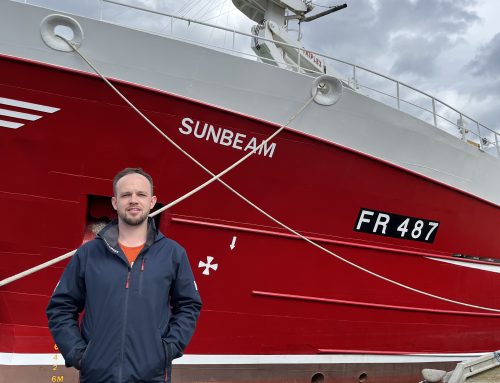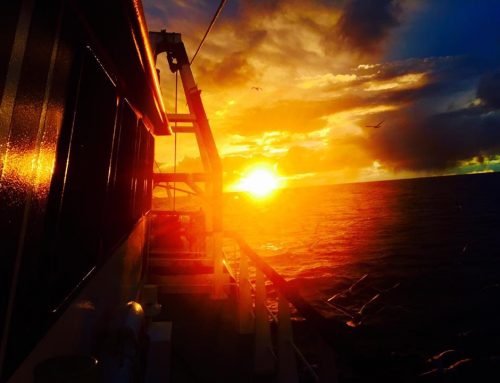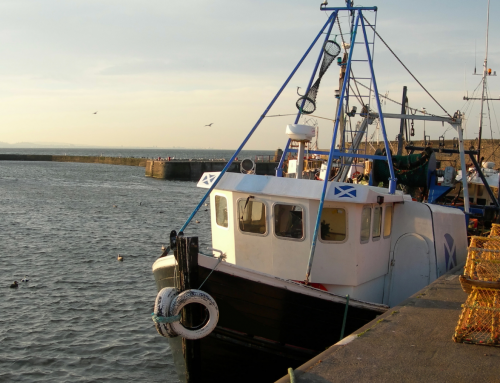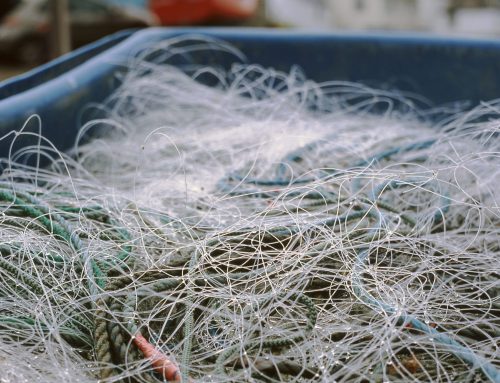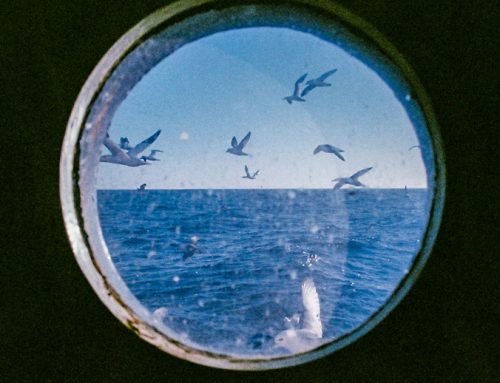At FIS, we have been scanning the horizon for emerging innovative technologies that can support a more prosperous and sustainable fishing industry. Our work is guided by key figures in the industry, who are advised by sector experts in science, economics, data, tech, and more.
We spoke with Alasdair Davies, a member of our expert group on technology solutions and Director of the UK conservation technology company Arribada, about his work with FIS, his role in shaping our new projects, and his vision for the Scottish fishing industry.
Arribada co-develop open-source conservation technology, with a focus on accessible and affordable solutions to ecological challenges. Their work spans the oceans, Alasdair tells us, from developing open-source satellite transmitters to aid sea turtle conservation, to bycatch mitigation gear and artificial intelligence systems for fishing vessels.
Transparency and collaboration are at the heart of Arribada, and they advocate knowledge-sharing between individuals, companies, sectors and nations. By gathering different ideas, viewpoints and experiences, Alasdair explains that you can build “innovation-bubbles”, where ideas will flourish and benefit multiple different sectors simultaneously.
For us, it’s about sharing [the knowledge] so that others can run with it. And if it’s improved, then our licensing dictates that it has to be shared on. So if another company successfully builds on our idea, they are obliged to share their knowledge, meaning other smaller companies or individuals can also benefit.
Collaboration between FIS and Arribada
With this drive for open-source knowledge and creating a positive impact, alongside their technological expertise, Arribada were a perfect fit for the FIS expert group. We asked Alasdair how this collaboration benefits both FIS and Arribada.
“This is an exciting time”, Alasdair says. “Tech is flowing out from the consumer space and is being repurposed in new ways… For example, by taking experienced engineers or universities who work in satellite observations and geospatial fields, and collaborating with someone who understands the fisheries sector… we can be more efficient at creating new policies, be more economical, and work more sustainably.”
As part of the expert group, Alasdair provides technical advice to FIS on machine learning, artificial intelligence, and remote learning. “My expertise is in technicalities… I advise on ways to apply new tech to the fishing industry. I enjoy the open-ended discussions of the expert group, where we ask questions such as, ‘what would an excellent Scottish fishery look like in ten years?’, and ’what knowledge do we need, and how do we apply it to the whole supply chain?’”.
The possibilities are exciting and endless, and FIS is delighted to learn from the experience and knowledge of Arribada.
The Future of Scottish fisheries
We asked Alasdair about his vision for the Scottish Fishing Industry. “Hands-free, autonomous data collection on fishing vessels,” was his immediate response.
We need to work with fishermen to develop a system that enables data to be collected in real-time onboard fishing vessels. If we can create an agile, affordable system which is embedded in a fisher’s routine and doesn’t disrupt fishing activity, we can use the information to feed into new policies, improved fishing activities, and better ethics in the industry.
FIS’ Vision
FIS champions innovation in the Scottish fishing industry, and since 2014 has commissioned over £2 million worth of multidisciplinary projects to support new ideas, new collaborations and new tech in the industry.
As a member of the expert group, Alasdair has advised on tenders and reviewed applications to FIS opportunities, including our recently commissioned projects that explore digitalisation and carbon emissions in the Scottish fleet. Read more here.


